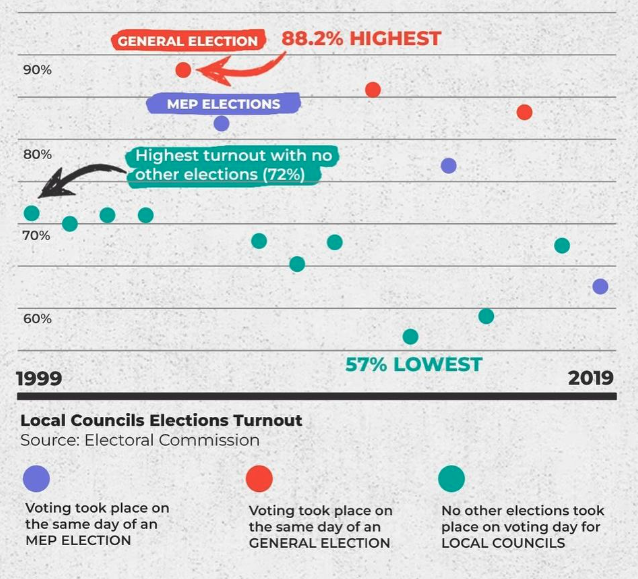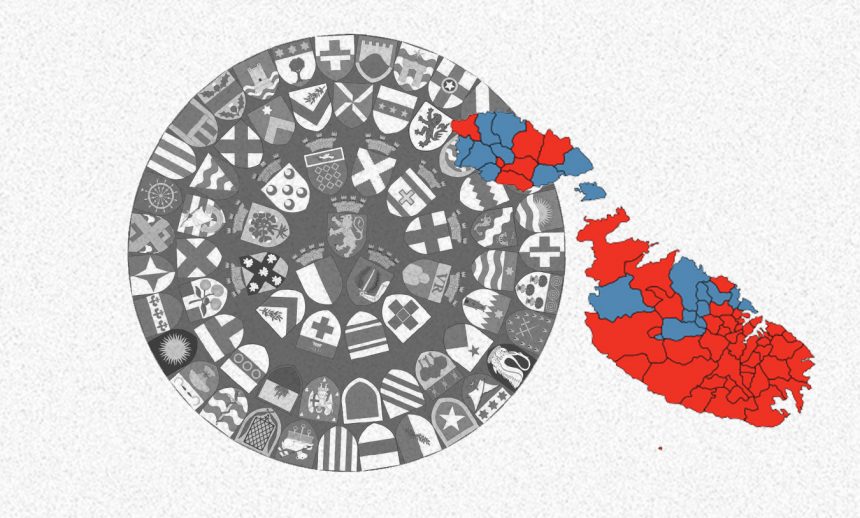Three decades since their inception, Malta’s local councils face significant scrutiny regarding their relevance and effectiveness. Originally designed to decentralise administrative power, these councils are now plagued by diminished responsibilities, reduced funding, and lack of personnel.
Local councils in Malta were established in 1993, with a vision to bring government closer to the citizens. This decentralisation sought to enhance community participation and respond more effectively to local needs, establishing a system in which governance could be more accessible and responsive.
Over the years, the role of local councils has both expanded and contracted. Initially, these bodies wielded significant influence over local governance, addressing specific needs unique to their jurisdictions.

Today, however, their role often appears diminished, relegated to more administrative functions such as waste collection coordination and minor infrastructural projects. This shift is partly due to the central government reclaiming some powers, leaving councils to act as intermediaries rather than autonomous governing bodies.
The rationale behind advocating for a return to more centralised governance is primarily based on the premise that it facilitates easier cooperation, which is crucial for tasks like infrastructure projects. For instance, coordinating road closures and establishing alternative routes often requires adjustments to be done in multiple localities.
The dwindling interest in council positions is evident. Both major political parties have struggled to find candidates for local elections. In fact, in certain localities, the number of candidates put forward by the two major parties is barely enough to require an election. This lack of interest can be attributed to the perceived reduction in the councils’ power and influence, making the roles less appealing to potential leaders.
Another reason often cited for this issue is the lack of financial incentives associated with such positions. Local councils frequently serve as a stepping stone for individuals aspiring to a career in politics. However, for those whose political ambitions do not extend beyond the town level, it is difficult to justify the demands and public scrutiny involved in these roles, especially for those who are not elected mayors.
The smaller pool of available candidates likely leads to a further decline in interest from the electorate due to a perceived lack of quality. This creates a vicious cycle that exacerbates the problem.
Funding for local councils has been inconsistent, impacting their ability to effectively serve their communities. Coupled with overlapping responsibilities between local and central government, councils find themselves unable to undertake significant projects without central approval, further questioning their autonomy and efficiency.
Some argue that a shift towards fewer, regional councils could enhance efficiency and use the limited available funds in a better way. By consolidating local councils into regional entities, Malta could potentially streamline services, reduce bureaucratic overhead, and improve project coordination across larger areas. An often-cited solution could be based on the current 13 electoral districts, while others propose a smaller number of larger regions. In 2009, regional structures were introduced, but their role has so far been mainly administrative and legal.
A study by the University’s Faculty for Social Well-being based on the southern regions, shows that only 37.1% of southern region residents are satisfied with their local councils, a sentiment likely echoed across the island. Perhaps even more worrying, is the fact that, based on the same study, a large portion of the population do not feel that they are aware of the roles of councillors.
The debate over the necessity of local councils will likely go on for years. The upcoming local elections will shed some light on what the Maltese electorate thinks on the subject. However, the fact that these are held in tandem with the MEP elections makes drawing conclusions from voter turnout a bit more challenging.
Nevertheless, it is hard to argue that there is an urgent need for a strategic reassessment of their structure and function. Proposals range from empowering councils with more authority and resources, to a complete overhaul that might see a transition to regional councils or even the phasing out of local councils altogether.


Leave a Reply